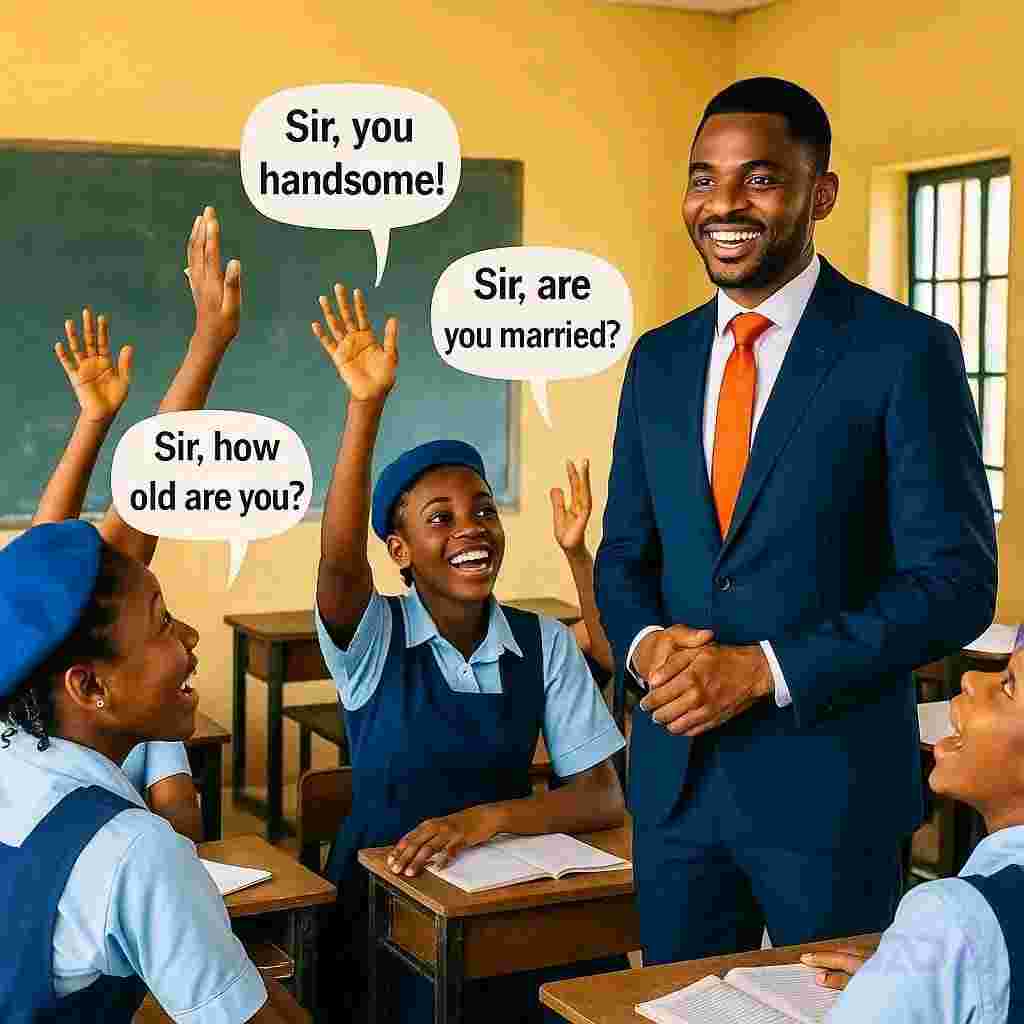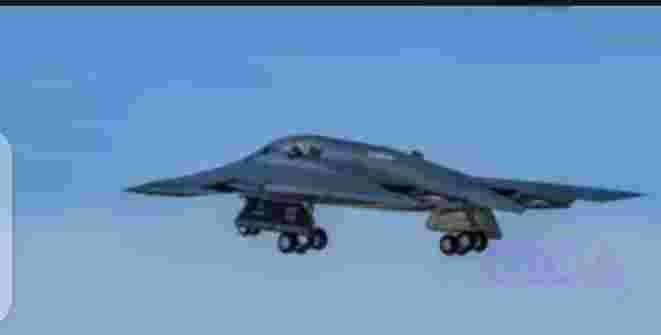"NO VICTOR, NO VANQUISHED”? NO, SIR. JUST THE BLOOD OF THE INNOCENT
A Truthful Dissection of Gen. Gowon’s Crocodile Tears
✍Ugochimereze Chinedu Asuzu
"I always remember the Civil War. It was the most difficult period of my life. It was not my choice…” So says General Yakubu Gowon: decades after the fact, as if the burden of memory alone could exonerate a man from the burden of responsibility.
But memory, stripped of remorse, becomes theatre. And this latest performance by the old General, wrapped in prayerful tones and wistful platitudes, is exactly that a theatre of moral evasion. What was presented as reflection was in fact deflection. A man who presided over the darkest chapter in Nigeria’s history now seeks to launder his conscience with the sponge of spirituality, mouthing prayers as if that were enough to bury three million truths beneath the soil of forgetfulness.
No, sir. You did not pray. You played. You played politics with people’s lives. You played Russian roulette with the destiny of a region. You played central command while entire communities burned. You stood at the gates of peace and walked away. The blood did not flow because you had no choice, it flowed because you made a choice. And the choice was war.
You stood beside Odumegwu Ojukwu at Aburi in Ghana. There, both of you spoke, agreed, shook hands and made a pact. You returned to Lagos to a hero’s welcome, but before the ink of trust could dry, you tore it apart. You listened to federal hawks, buried Aburi under the rubble of Decree No. 8, and turned your face from peace. You betrayed a solemn covenant for the sake of power. That betrayal, not the first shot fired, is where the war truly began.
The records are stubborn. They do not bend to nostalgia. They remind us that before a single Biafran soldier took up arms, thousands of Igbos had been hacked down in the North. Pregnant women butchered. Children beheaded. Men dismembered in full daylight. Railway stations were turned into morgues. Churches, into chambers of death. Kaduna. Kano. Jos. The North descended into madness, and the East was served grief on a plate of silence.
You, sir, presided over that silence. You were Commander-in-Chief, not a curious passerby. You issued words but withheld justice. You gave speeches, but not shelter. You watched a people bleed and called it unfortunate. And now, years later, you whisper: "It was never out of hatred." But hatred needs no introduction when its fruit is genocide.
And then came your famous phrase, carved into Nigeria’s post-war psyche: “No victor, no vanquished.” It sounded noble. It rang loud. But it rang false. Because the war ended, yes, but justice never began. Biafrans were not vanquished by force alone, they were buried beneath the rubble of reconstruction. Their economy was stripped. Their currency devalued. Their children starved. Their land mined and their dignity mocked. What you called reintegration, we lived as retribution. What you labeled reconciliation, we endured as marginalisation. The victor danced in national attire. The vanquished crawled through national amnesia.
Sir, you had the chance to become a Mandela long before South Africa birthed one. You had the moment. The world watched. The African continent stood still. But you chose empire over empathy. You chose command over compassion. You chose to keep Nigeria one by breaking a people in half. And now, the same mouth that sanctioned the guns says, "I prayed to God." Perhaps you did. But God is not mocked by crocodile tears. Not when the skulls of infants still haunt the red soil of Nsukka, Aba, Umuahia, and Onitsha.
Prayer is not repentance. Repentance begins with truth. And the truth is that you, along with others, enabled a war that was avoidable. You squandered the peace we almost had at Aburi. You enabled pogroms with your silence. You denied justice its wings and handed the world a bullet instead. And when it was all done, you wrapped the pain in poetry and hoped the music would make us forget.
But we remember. Not because we hate. But because we bleed.
This is not a call to bitterness. It is a call to honesty. To name what happened. To look the children of Biafra in the eye and say: Yes, you were wronged. Yes, we failed you. Yes, the war was avoidable. And no, it should never have happened.
Until then, sir, do not cloak yourself in prayer while justice lies unclothed. Do not speak of love when you could not uphold truth. Do not say “it was not my choice” when history has proven otherwise. And above all, do not try to rewrite what we lived.
You may now carry the Bible in one hand. But the other hand still drips with memories. Your legacy may wear the robe of elder statesmanship. But it remains stained by silence, by betrayal, and by the bones of those who trusted your word at Aburi.
So here, General Gowon, is what history truly says:
You may cry now, but the tears do not wash the blood away.
You may kneel today, but that does not undo the horror of yesterday.
You may pray, but the ghosts still answer with questions.
And until Nigeria confronts its past with courage, it will never know peace that lasts.
We forgive. But we do not forget. We move on. But we do not move blind.
Because truth, bitter as it may be - is still better than convenient lies.
✍Ugochimereze Chinedu Asuzu
Social Cum Political Analysis|Tuesday, June 10, 2025
"NO VICTOR, NO VANQUISHED”? NO, SIR. JUST THE BLOOD OF THE INNOCENT
A Truthful Dissection of Gen. Gowon’s Crocodile Tears
✍Ugochimereze Chinedu Asuzu
"I always remember the Civil War. It was the most difficult period of my life. It was not my choice…” So says General Yakubu Gowon: decades after the fact, as if the burden of memory alone could exonerate a man from the burden of responsibility.
But memory, stripped of remorse, becomes theatre. And this latest performance by the old General, wrapped in prayerful tones and wistful platitudes, is exactly that a theatre of moral evasion. What was presented as reflection was in fact deflection. A man who presided over the darkest chapter in Nigeria’s history now seeks to launder his conscience with the sponge of spirituality, mouthing prayers as if that were enough to bury three million truths beneath the soil of forgetfulness.
No, sir. You did not pray. You played. You played politics with people’s lives. You played Russian roulette with the destiny of a region. You played central command while entire communities burned. You stood at the gates of peace and walked away. The blood did not flow because you had no choice, it flowed because you made a choice. And the choice was war.
You stood beside Odumegwu Ojukwu at Aburi in Ghana. There, both of you spoke, agreed, shook hands and made a pact. You returned to Lagos to a hero’s welcome, but before the ink of trust could dry, you tore it apart. You listened to federal hawks, buried Aburi under the rubble of Decree No. 8, and turned your face from peace. You betrayed a solemn covenant for the sake of power. That betrayal, not the first shot fired, is where the war truly began.
The records are stubborn. They do not bend to nostalgia. They remind us that before a single Biafran soldier took up arms, thousands of Igbos had been hacked down in the North. Pregnant women butchered. Children beheaded. Men dismembered in full daylight. Railway stations were turned into morgues. Churches, into chambers of death. Kaduna. Kano. Jos. The North descended into madness, and the East was served grief on a plate of silence.
You, sir, presided over that silence. You were Commander-in-Chief, not a curious passerby. You issued words but withheld justice. You gave speeches, but not shelter. You watched a people bleed and called it unfortunate. And now, years later, you whisper: "It was never out of hatred." But hatred needs no introduction when its fruit is genocide.
And then came your famous phrase, carved into Nigeria’s post-war psyche: “No victor, no vanquished.” It sounded noble. It rang loud. But it rang false. Because the war ended, yes, but justice never began. Biafrans were not vanquished by force alone, they were buried beneath the rubble of reconstruction. Their economy was stripped. Their currency devalued. Their children starved. Their land mined and their dignity mocked. What you called reintegration, we lived as retribution. What you labeled reconciliation, we endured as marginalisation. The victor danced in national attire. The vanquished crawled through national amnesia.
Sir, you had the chance to become a Mandela long before South Africa birthed one. You had the moment. The world watched. The African continent stood still. But you chose empire over empathy. You chose command over compassion. You chose to keep Nigeria one by breaking a people in half. And now, the same mouth that sanctioned the guns says, "I prayed to God." Perhaps you did. But God is not mocked by crocodile tears. Not when the skulls of infants still haunt the red soil of Nsukka, Aba, Umuahia, and Onitsha.
Prayer is not repentance. Repentance begins with truth. And the truth is that you, along with others, enabled a war that was avoidable. You squandered the peace we almost had at Aburi. You enabled pogroms with your silence. You denied justice its wings and handed the world a bullet instead. And when it was all done, you wrapped the pain in poetry and hoped the music would make us forget.
But we remember. Not because we hate. But because we bleed.
This is not a call to bitterness. It is a call to honesty. To name what happened. To look the children of Biafra in the eye and say: Yes, you were wronged. Yes, we failed you. Yes, the war was avoidable. And no, it should never have happened.
Until then, sir, do not cloak yourself in prayer while justice lies unclothed. Do not speak of love when you could not uphold truth. Do not say “it was not my choice” when history has proven otherwise. And above all, do not try to rewrite what we lived.
You may now carry the Bible in one hand. But the other hand still drips with memories. Your legacy may wear the robe of elder statesmanship. But it remains stained by silence, by betrayal, and by the bones of those who trusted your word at Aburi.
So here, General Gowon, is what history truly says:
You may cry now, but the tears do not wash the blood away.
You may kneel today, but that does not undo the horror of yesterday.
You may pray, but the ghosts still answer with questions.
And until Nigeria confronts its past with courage, it will never know peace that lasts.
We forgive. But we do not forget. We move on. But we do not move blind.
Because truth, bitter as it may be - is still better than convenient lies.
✍Ugochimereze Chinedu Asuzu
Social Cum Political Analysis|Tuesday, June 10, 2025






